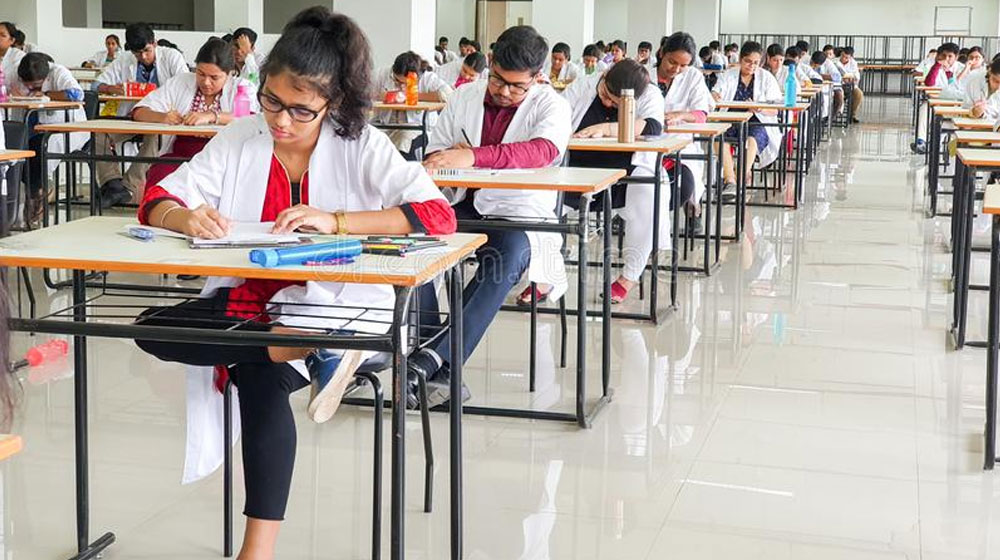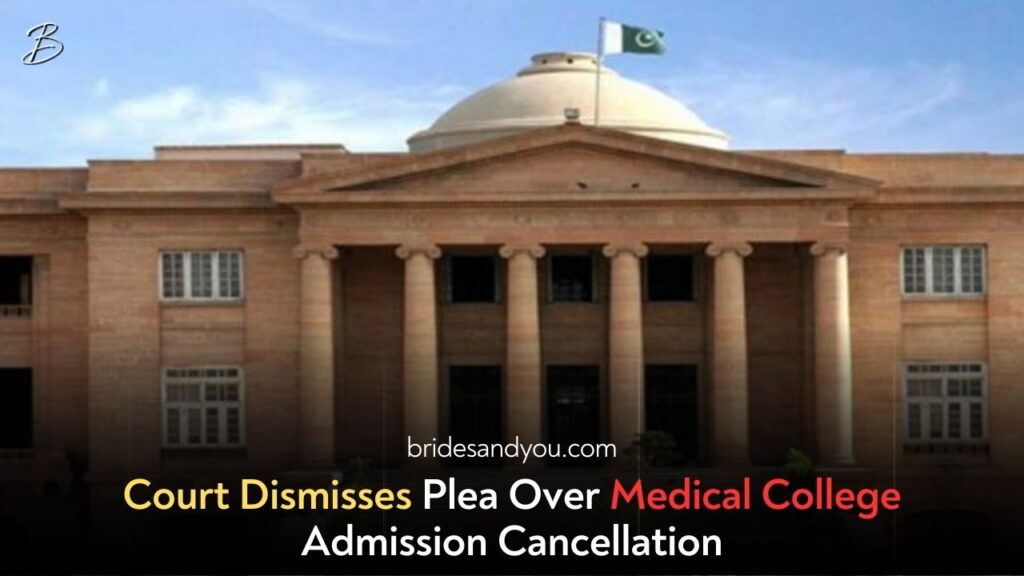Now Reading: National Assembly Committee Demands Urgent Reforms in MDCAT to Fix Medical Admission Issues
-
01
National Assembly Committee Demands Urgent Reforms in MDCAT to Fix Medical Admission Issues
National Assembly Committee Demands Urgent Reforms in MDCAT to Fix Medical Admission Issues

The demand for improvements in Pakistan’s medical education system has grown stronger in recent years. Students, parents, and academic experts have repeatedly pointed out the flaws in the Medical and Dental College Admission Test (MDCAT) and the overall admission framework for MBBS and BDS programs. This week, the issue received fresh momentum as the National Assembly Committee Demands Urgent Reforms in MDCAT, highlighting how pressing the situation has become.
During the latest meeting of the National Assembly Standing Committee on National Health Services, Regulations and Coordination, the members openly voiced concerns regarding the existing admission policies and governance issues in various health-related councils. The session was chaired by MNA Mahesh Kumar Malani and touched on matters affecting thousands of medical aspirants across the country.

MDCAT Reforms Become a National Priority
The committee placed strong emphasis on reviewing the MDCAT structure, especially the three-year validity of MDCAT scores. Members shared that this multi-year validity creates an unfair advantage for some students while disadvantaging others who sit for the exam in a different year. Because difficulty levels vary each year, using results across different exam cycles results in an inconsistent and unequal evaluation system.
Committee members also noted that while MDCAT is meant to ensure quality and merit, the current system has created confusion and mistrust among students. Many students and parents question whether a standard benchmark can truly exist when past results are considered equal to current ones.
PMDC Regulations and Medical Seat Shortages Debate
Another major concern raised during the meeting was the issue of rising vacant seats in MBBS and BDS programs. Despite thousands of students applying each year, a significant number of seats remain unfilled. The committee discussed why this gap continues to grow.
Several reasons were highlighted:
- Students shifting from one institution to another
- Students switching disciplines after securing admission
- Mismanagement in waiting lists
- Delays in admission processes
To address these problems, the panel reviewed proposals such as placing a ban on inter-college transfers and strengthening waiting list mechanisms to make sure medical seats are not wasted.
The Health Minister acknowledged the seriousness of the issue. Although he explained that current admissions could not be altered, he agreed that future reforms must be developed and implemented quickly.
Health Minister Orders Urgent Action Plan
The Health Minister directed the Pakistan Medical and Dental Council (PMDC), the Law Division, and various university vice-chancellors to submit a legally vetted and comprehensive plan within two days. The goal is to prevent further seat wastage and ensure that admission policies become more transparent and efficient.
This directive shows that the government now recognizes that seat wastage is not just a logistical issue—it directly affects Pakistan’s healthcare system. Every vacant seat represents a missed opportunity to train a future doctor or dentist.
IBCC Equivalency Concerns for Cambridge Students
Another important topic discussed during the meeting was the IBCC equivalency formula, which has long been a point of concern for students from the Cambridge system (O Levels and A Levels).
Many such students argue that the current formula does not fairly convert their grades into marks comparable with local board students. This often leads to lower overall merit scores, reducing their chances of securing admission in top medical colleges.
The committee acknowledged the seriousness of these concerns. The chairman asked members to personally meet with IBCC officials and work together to design a fair, modern, and transparent equivalency formula.
Issues in PNMC Draw Attention
Alongside the MDCAT and IBCC matters, the committee also reviewed governance issues within the Pakistan Nursing and Midwifery Council (PNMC). Members pointed out administrative irregularities, including the continued involvement of Ms. Yasmin Azad despite previous directives for her removal.
The Health Minister clarified that the PNMC has been reconstituted and will hold its next meeting soon. He also issued a directive that all pending matters must be resolved within one week.
This step shows the government’s intention to improve not only medical but also nursing and midwifery education governance, which is equally essential for Pakistan’s healthcare workforce.
Why These Reforms Matter for Pakistan’s Future
Pakistan’s healthcare industry heavily depends on the quality of education provided to medical and nursing students. Any weakness in admission procedures, regulatory frameworks, or academic policies eventually impacts the country’s healthcare outcomes.
Key reasons why these reforms are crucial include:
- Ensuring fairness and merit in medical admissions
- Preventing talented students from losing opportunities due to policy flaws
- Maintaining the quality of healthcare professionals
- Increasing public trust in the system
- Ensuring that all available medical seats are filled
- Improving governance in regulatory bodies
For thousands of families who invest years of effort and resources to prepare for MDCAT, these reforms offer hope for a better and more transparent system.
Students and Parents Expect Clear Improvements
The public reaction to the committee’s recommendations has been strong. Students expect the government to address the inconsistencies in MDCAT validity, introduce fair equivalency procedures, and ensure that no medical seats go to waste.
Parents hope that the government will:
- Make the admission process smoother
- Avoid unnecessary delays
- Provide equal opportunities to all applicants
- Increase transparency in decision-making
If the recommended reforms are implemented, future medical students will experience a much more reliable and fair admission system.
Conclusion
The National Assembly Committee Demands Urgent Reforms in MDCAT, and this call reflects the need for a modern, transparent, and accountable system. With clear directives from the Health Ministry and active involvement from PMDC, IBCC, and PNMC, Pakistan may soon witness significant improvements in its medical education structure.
A stronger system will not only benefit students but also contribute to a healthier and more skilled future generation of healthcare providers.











